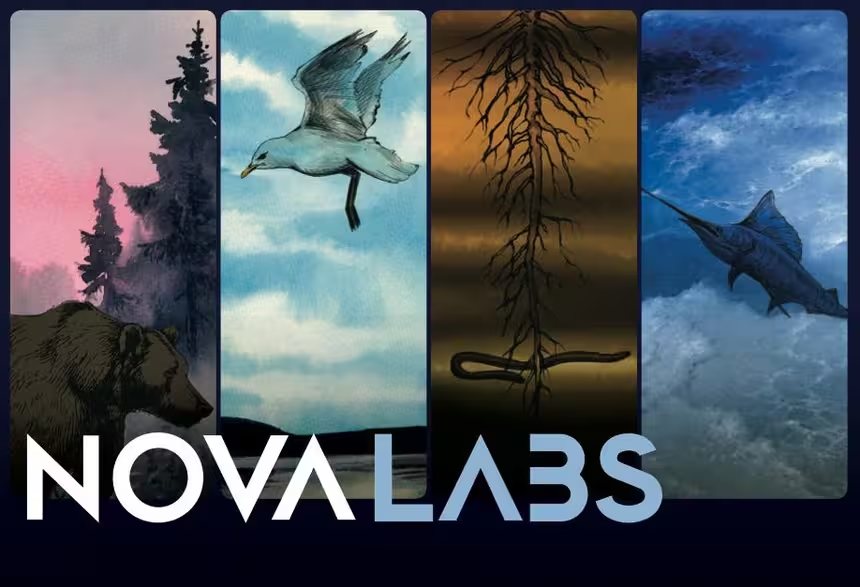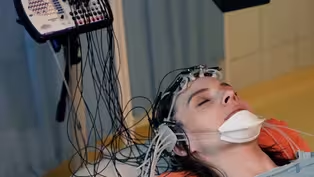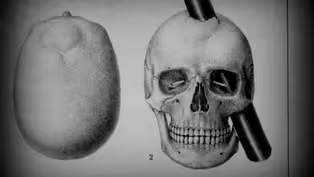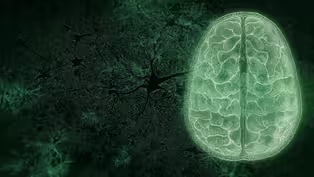
How Trauma Can Alter Your Biology
Clip: Season 50 Episode 10 | 4m 40sVideo has Closed Captions
Your ancestors' experiences might influence how your brain is wired today.
Certain experiences are so profound that they can impact brain biology from one generation to the next.
Problems playing video? | Closed Captioning Feedback
Problems playing video? | Closed Captioning Feedback
National Corporate funding for NOVA is provided by Carlisle Companies and Viking Cruises. Major funding for NOVA is provided by the NOVA Science Trust and PBS viewers.

How Trauma Can Alter Your Biology
Clip: Season 50 Episode 10 | 4m 40sVideo has Closed Captions
Certain experiences are so profound that they can impact brain biology from one generation to the next.
Problems playing video? | Closed Captioning Feedback
How to Watch NOVA
NOVA is available to stream on pbs.org and the free PBS App, available on iPhone, Apple TV, Android TV, Android smartphones, Amazon Fire TV, Amazon Fire Tablet, Roku, Samsung Smart TV, and Vizio.
Buy Now

NOVA Labs
NOVA Labs is a free digital platform that engages teens and lifelong learners in games and interactives that foster authentic scientific exploration. Participants take part in real-world investigations by visualizing, analyzing, and playing with the same data that scientists use.Providing Support for PBS.org
Learn Moreabout PBS online sponsorship- [Narrator] Certain experiences are so profound, so extreme that they can impact brain biology from one generation to the next.
Neuroscientist, Bianca Jones Marlin is studying how your ancestors' experiences might control how your brain is wired today.
- We ask how trauma affects the brain, how trauma affects the body, and really how trauma affects generations.
People in the world suffer from traumatic events and these traumatic events aren't just a one-time change in their brain and their body.
It actually continues for seemingly their lifetime.
- [Narrator] Bianca's research is inspired by her upbringing.
- My parents, my biological parents, were also foster parents, so I had foster siblings and adopted siblings growing up.
Only now as a scientist, I realize that that motivates a lot of the questions that I ask.
How do we understand what happens when kids are born into trauma and optimize what we do have for better generations?
- [Narrator] One insight comes from an event during World War II.
- At the end of World War II, the Netherlands were cut off from food by Nazi troops because they decided to protest through the country and during this period of time, it created a manmade famine.
There was starvation, death, there was trauma.
- [Narrator] Not only did those who suffered during the famine experience health problems, but some of their children and even their grandchildren had metabolic issues.
- So people began to ask, how does an experience of a parent, of a grandparent, change offspring?
- [Narrator] Researchers began to discover that your environment and your experiences can change the way your genes are activated in your body and in your brain.
- It's not like you get your genes and it's set in stone.
They're constantly changing based on the environment.
- [Narrator] To see this in action, Bianca studies mice.
- We're able to map the whole genome of mice.
Target certain areas of that genetic code and use them to answer the important questions in science.
- [Narrator] So how could stress and trauma alter the biology of the mice's offspring?
To find out, Bianca paired the smell of almond with an electric shock.
- Because mice really navigate the world and rely heavily on the sense of smell, we use olfaction, pair it with a light foot shock and we observe changes in the brain and changes in behavior.
- [Narrator] She noticed that something inside of the mice's noses changed.
- We're able to look at the cells in the nose that only respond to almond and what we observe is that after the light foot shock and the presentation of almond coinciding, there are more cells in the nose that express the almond receptor.
It's as if something in the milieu of the nose says, almond's important in this environment, we need more cells like you.
- [Narrator] Mice grew more cells that responded to the smell of almond.
- Each one of these three dots you see here, these are neurons.
They're cells that can respond to the almond smell.
These red dots are cells that were born after the presentation of odor and shock and this cell right here, this red and green cell, is a cell that was born after the presentation of almond and shock that also responds to almond.
This is the cell that we wanna look at to see what information is inside, because we see more of these after the odor and shock pairing.
- [Narrator] Remarkably, these changes were actually passed down to the next generation.
- The offspring, the kids of the parents that were shocked with odor were born with more cells express in the almond receptor, which means there's a memory that somehow is maintained in sperm, in egg, through implantation and represented in offspring.
It is as if we are observing a change, an evolution over the time span of one generation.
And I just think that's fascinating.
Because we as humans know how environment and how traumatic events change people.
Just being able to take the science of that and being able to show that, we're just justifying what we already know as humans.
What society has known for a long time, what individuals know.
We just wanna bring that to an undeniable truth.
What Happens in the Brain When you Sleepwalk?
Video has Closed Captions
Clip: S50 Ep10 | 3m 55s | Some people can do complex behaviors like walking and driving while sleeping. (3m 55s)
What If Part of Your Brain Was Missing?
Video has Closed Captions
Clip: S50 Ep10 | 2m 29s | An injury cost Phineas Gage part of his brain, but he lost something else too. (2m 29s)
Your Brain: Who's in Control? Preview
Video has Closed Captions
Preview: S50 Ep10 | 29s | Dive into the subconscious to see what’s really driving the decisions you make. (29s)
Providing Support for PBS.org
Learn Moreabout PBS online sponsorship
- Science and Nature

Capturing the splendor of the natural world, from the African plains to the Antarctic ice.













Support for PBS provided by:
National Corporate funding for NOVA is provided by Carlisle Companies and Viking Cruises. Major funding for NOVA is provided by the NOVA Science Trust and PBS viewers.





